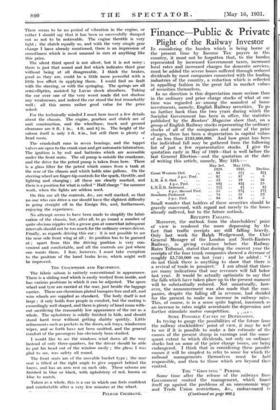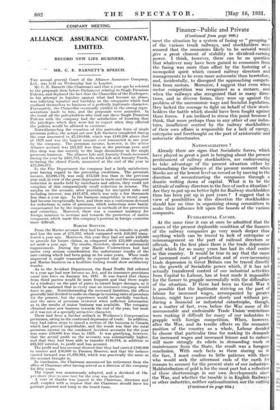THE " GROUPING " PERIOD.
SODIC time after the release of the railways from Government control the management, which found itself op against the problems of an uneconomic wage and Trade Union restrictions, &c., endeavoured to (Continued on page 802.)
Finance—Public and Private
(Continued from page. 800.) meet the situation by a system of fusing or " grouping " of the various trunk railways, and stockholders were assured that the economies likely -to be secured would give a great element of stability to dividend-earning power. I think, however, there can be no question that whatever may have been gained in economies from the fusing was more than offset by the fostering of a monopolist spirit which caused railway directors and managements to be even more autocratic than heretofore, and, incidentally, to disregard the approaching competi- tion from motors. Moreoyer, I suggest that even when motor competition was recognized as a menace, and when the railways also recognized that in many direc- tions, and in diverse forms, they were up against the problem of the uneconomic wage and Socialist legislation, they lacked the courage to fight on behalf of their stock- holders the battle which should have been fought against those forces. I am inclined to stress this point because I think, that more perhaps than in any other of our indus- tries, insufficient control by the railway stockholders of their own affairs is responsible for a lack of energy, enterprise and forethought on the part of aristocratic and autocratic directorates.



















































 Previous page
Previous page